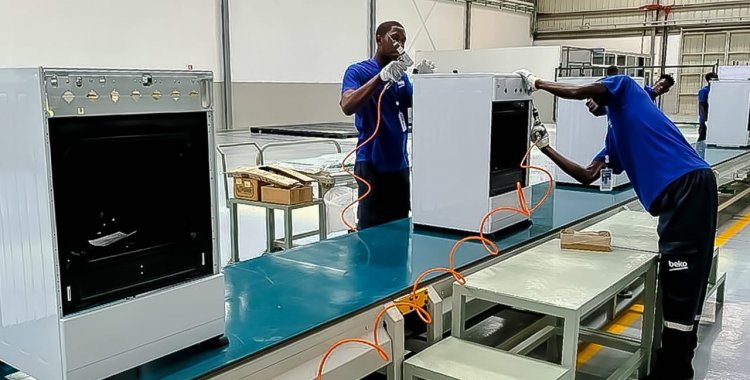The result of an investment of 2.5 million dollars, the said line has an installed capacity for assembling 200,000 pieces of electrical appliances per year, having generated 80 new jobs.
According to a communiqué from the Ministry of Industry and Commerce, to which VerAngola had access, the Minister of Industry and Commerce, Victor Fernandes, proceeded, last Friday, to inaugurate the assembly line: "The Minister of Industry and Commerce, Victor Fernandes, inaugurated this Friday morning, the first assembly line for household appliances of the Beko brand, a manufacturing unit of the IMEX Indústria group", reads the note.
On the occasion, the holder of the Commerce and Industry portfolio considered that the appearance of this unit "represents the resilience of businessmen operating in the Angolan market".
The government official also highlighted the creation of more jobs, mainly for younger people, "which is why the ministry will continue to work to ensure that the conditions for doing business in Angola are always the best".
According to Victor Fernandes, the statement adds, "the domestic appliances sector essentially depends on imports, with customs fees associated with products related to this consumption still" being low "and the aim is to create conditions for" increasing "the production, review these rates, in order to guarantee that production is made, mostly, in Angola".
The minister also left the guarantee that "the national market is open to all who intend to invest in it and urged other businessmen to face this private initiative as a reflection of that".
According to the communiqué, "this assembly line is the first of the group in the continent", being located in the capital.
The opening act was attended by the Secretary of State for Commerce, Amadeu Leitão Nunes, national directors and consultants from the ministry, IMEX Indústria partners, among other guests.
On the occasion, the CEO of the IMEX group, Ramzi El Houchaimi, quoted by Angop, made it known that they had built 14 stores in Angola to sell the products, eight of which in the capital, two in Cabinda, two in Huíla, one in Benguela and one in Huambo.







